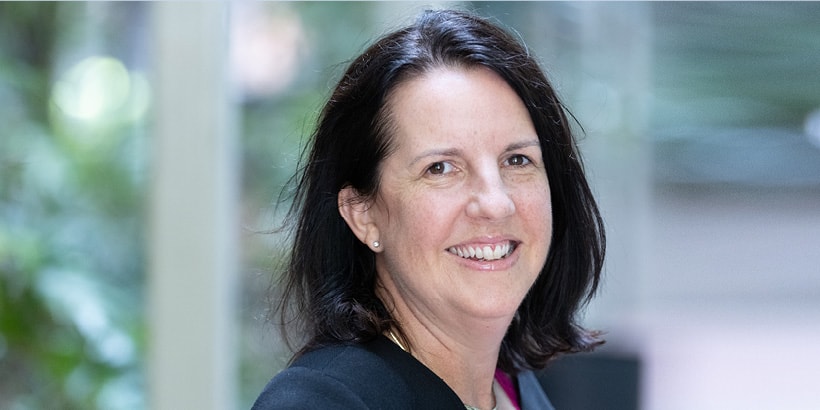
Let your babies grow up to be doctors
May 10, 2023
Asking the right questions
May 10, 2023FEATURE
When we suddenly lose a colleague… what happens next?
Doctors’ Health NSW is developing a postvention toolkit to ensure workplaces are equipped to provide thoughtful and compassionate responses.
AT ALL TIMES, healthcare organisations and communities are vulnerable to the unexpected loss of a doctor, at any stage of their career. As doctors, we will all experience such a loss at least once in our professional lives. Sometimes this occurs as the result of a sudden illness, unexpected event, or accident. Tragically, and all too frequently in our profession, this can also occur when a fellow doctor or medical student ends their life by suicide.
Our immediate response after any unexpected loss is usually profound shock. After a colleague has taken their own life, this shock is often compounded by deep feelings of guilt or remorse. It is a normal response for all of us to develop quite unrealistic thoughts that we might somehow have prevented the tragic outcome. The way we hear the news can be very distressing, and other difficult thoughts and emotions, such as anger, anxiety and debilitating grief often surface during this time. These feelings can be compounded by the close relationships that often exist within medical teams, and the personal connections that we may have had with the colleague we have lost.
Doctors may also experience other psychological symptoms such as depression, post-traumatic stress disorder, and burnout, which can have significant effects on wellbeing. Depending on a range of factors and vulnerabilities this can also include an increased personal risk of suicide.
It can be very hard to carry on, and the response of the workplace is vitally important to provide support to the entire team during this difficult time.
In the immediate aftermath of an unexpected loss, there is often a lot of confusion about what happens next. Organisational responses can be varied. How can the family be supported? How can the news be communicated without causing further distress? Who should be told and how do we support one another in our grief? We may have our own ways of coping which do not match the expectations of our peers or the needs of the workplace. Pragmatically, there are usually decisions to be made about how the clinical service can continue without one of the key practitioners, in circumstances in which the rest of the team is impacted by shock and grief.
Without access to immediate expert advice and adequate resources, it is difficult for managers to know what to do, and there is risk of further harm being caused in this situation. It is important to recognise that doctors often have many barriers to healthcare access, which may mean they are relatively unsupported during these times.
The AMA (NSW) Doctors-in-Training Committee is very conscious of the need for a thoughtful and compassionate response from workplaces at these times and raised this as a priority issue for our health system to address. In response, AMA (NSW) and Doctors’ Health NSW put together a proposal to ensure that resources are developed, based on the recognised elements of postvention, to assist managers to know what to do at these times.
Thanks to a specific allocation of funding from NSW Health, this essential work is now underway.
This will ensure that best practice, purpose-built resources are developed, in consultation with doctors and medical students. The development of this NSW-wide resource will build upon the existing knowledge about how to provide general support, but in particular will address issues specific to the medical profession in these circumstances.
WHAT IS POSTVENTION?
The term ‘postvention’ refers to the actions taken after a suicide to help support those who have been affected by the loss, including the family and friends of the person who died, as well as their colleagues and other members of the community. Postvention is an essential component of suicide prevention, as it provides a way to address the emotional and psychological impact of suicide and reduce the risk of further death by suicide.
WHY IS THIS IMPORTANT?
Suicide among doctors is a significant problem in Australia. Alarmingly, the suicide rate among male doctors is 2.3 times higher than in the general population, and the suicide rate among female doctors is 3.4 times higher.1 A 2013 national survey of medical students and doctors conducted by Beyond Blue2 found that more than 25% of respondents had experienced suicidal ideation, and nearly 7% had attempted suicide.
The loss of a colleague can also have a professional impact on other doctors and may leave them struggling to manage an increase in workload under difficult conditions. Communication with patients and their families about the loss can also be challenging and can further complicate the grieving process.
It is therefore essential for the medical community to recognise the impact of suicide on doctors and to provide the necessary resources and support to address it via prevention and postvention activities.
HOW WILL A POSTVENTION RESOURCE HELP?
The postvention resource now being developed by Doctors’ Health NSW will provide managers and other affected individuals with comprehensive information and guidance to help them manage both immediately and into the future, after the unexpected loss of a doctor or medical student. Specifically, it will offer guidance on understanding the levels of impact such a loss can have within a particular health setting as well as addressing the emotional and psychological impact on colleagues, and ensuring adequate support is provided.
The resource will also tackle some of the practical and professional needs of doctors and other staff and will provide doctors and managers with guidance to navigate referrals for those who need more in-depth support in the difficult and distressing period that follows the loss of a colleague. Difficult questions will be addressed, such as the use of appropriate language when discussing a death by suicide, as well as guidance on how to appropriately memorialise a colleague. The availability of this resource will also help to ensure that all doctors and managers have access to the same level of information regardless of the hospital or health setting they work in.
HOW CAN YOU HELP?
Input from doctors and medical students is essential to the development of this resource. If you have experienced the unexpected loss of a colleague, and are willing to share your thoughts, then please contact Doctors’ Health NSW on admin@dhas.org.au.
If you have been impacted by a loss or other stress, and would like some confidential support, doctor to doctor, please contact Doctors’ Health NSW for confidential 24/7 service on 02 9437 6552 or visit doctorshealth.org.au
Donate to support a colleague: https://dhas.org.au/donate-support
References
1. Dutheil F, Aubert C, Pereira B, Dambrun M, Moustafa F, et al. (2019) Suicide among physicians and health-care workers: A systematic review and meta-analysis. PLOS ONE 14(12): e0226361. https://doi.org/10.1371/journal.pone.0226361
2. Wu, F., Ireland, M., Hafekost, K., & Lawrence, D. (2013). National mental health survey of doctors and medical students. https://medicine.uq.edu.au/files/42088/Beyondblue%20Doctors%20Mental%20health.pdf
ABOUT THE AUTHORS: Contributed by Doctors’ Health NSW Medical Director, Dr Kathryn Hutt, in coordination with AMA (NSW) CEO Fiona Davies.

